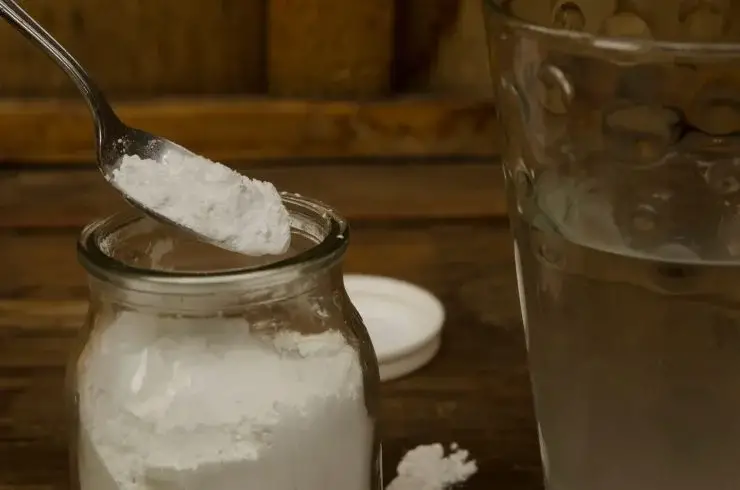Danger ! 10 Expired Foods You Should Never Eat
Sometimes it is still possible to safely consume certain foods that have passed their best-before date . This marking on the packaging is often just an indication. Based on the appearance, smell and taste of a food, you can quickly determine whether it is safe to eat or not and whether the taste and texture have not deteriorated. With products like yogurt, you can easily gain a few more weeks of time and avoid food waste, which is bad for both your wallet and the planet. However, other foods require more care and strict adherence to the instructions on the package. So here are the sensitive foods that you should never consume past the best before date as it can be dangerous. Garbage can! .
MHD or MHD? The best-before date of food decoded
Not all data is equal and has the same impact. Therefore, differentiate between the best-before date (Best before date) “Best before…” and the best-before date (Best before date) “Use by…” .
As can be read on the government website, the best before date (BBD) applies to “most products that are stored in a cool place and are microbiologically perishable”. With the best-before date, which replaces the best-before date (BBD), consumers can handle food more flexibly. As long as the packaging is not damaged, the food (canned goods, coffee, tea, dried foods, etc.) is still safe to eat. However, it may lose some of its aroma or taste and nutritional values, especially its vitamin content.
This article is about foods with a best before date (BBD).
So which foods should you no longer eat after the best-before date has passed?
1) Red and white meat
The smell of expired red or white meat quickly becomes unpleasant. In addition, it can take on a brownish color and a slimy texture when no longer fresh, especially in poultry (chicken, turkey, etc.), which can also emit foul-smelling juice. In this case, and if there is the slightest doubt, you should not consume the peel, since meat is one of the foods most likely to cause indigestion, severe food poisoning or a serious bacterial infection (salmonellosis, listeria, etc.). Because not all bacteria die when cooking , no matter how long and hot it takes.
In addition, remember that meat in the butcher shop must be consumed even faster, even within a maximum of twelve hours in the case of minced meat, the most delicate of all meats . Additionally, for maximum freshness, always ask your butcher to chop the meat in front of you. If you find that you cannot eat it, you should freeze it as soon as possible after purchasing it and make sure it has never been frozen before. If you wait until the last day of the best-before date stated on the packaging, you can be sure that you are freezing meat that is no longer completely fresh and therefore potentially harmful to your health once thawed.
2) Sausages
Aperitif, raclette, picnic… In some cases it is difficult to give up sausages! However, we are talking about very delicate products based on raw meat. Cooked ham, black pudding, andouillette, pâté, rillettes, sausages… Once opened or when the packaging is no longer intact, you should ideally consume these products within two to three days (no longer than five days). When it comes to sliced sausages, it is generally assumed that they should be eaten on the same day to ensure maximum freshness. This may sound extreme, but it is worth remembering that salmonella can be fatal, especially in certain sensitive cases (sick people, pregnant women, the elderly, children, etc.). However, with dry sausage products (dry sausage, dried beef, raw ham, etc.) you can be a little more relaxed.
3) Fish and seafood
Fish and seafood are very fresh products and are therefore in a similar proportion to meat. In general, products purchased from fishmongers are best consumed within 24 hours, some even within 48 hours , but rarely longer. To avoid stomach aches or infection with Escherichia coli (E. coli), always make sure the fish is really fresh before you buy it. And at the slightest change in smell or color : be uncompromising! Otherwise your health could suffer greatly.
4) The eggs
The eggshell is a porous protection that becomes less effective over time. Microbial attacks can then occur, which in turn poses the risk of becoming ill. Therefore, in the store, always prefer free-range eggs that are as close to the laying date as possible . Some boxes sometimes stay on the shelf for a very long time. However, an egg is usually consumed within 28 days of being laid . So pay very close attention to this small detail on the packaging! Other recommendations include not consuming an egg whose shell appears to be damaged and never cleaning it with water if it has stains, as this increases its porosity. However, in this case you can brush them! You can also read about techniques to test the freshness of eggs here.
What about boiled eggs? An egg yolk only lasts a few hours. Under good storage conditions, you should allow 6 to 7 days for the egg whites and hard-boiled eggs . It is also possible to freeze the egg whites to extend their shelf life to a month. Just remember to label the container well!
5) Milk and cream, foods made from dairy products that are prone to expiration
If it is pasteurized or sterilized UHT milk, you can keep the carton or bottle long after its expiration date as long as it remains tightly sealed and not warped . After opening, the milk is used within a maximum of a week if stored in the refrigerator, or around 24 hours at room temperature. When using fresh cream, the date should be strictly adhered to. In addition, the shelf life after opening is shorter (especially since this product is not frozen when raw). Once opened , the cream is no longer sterile and bacteria really enjoy it. For optimal freshness, it is best to use them within two to three days . You should also store the glass upside down to prevent air from getting in, improving durability and preventing mold from forming.
6) Fresh, unpasteurized fruit juices
Attention, we are not talking about unrefrigerated juice cartons, but about unpasteurized products that have been stored in refrigerators or refrigerated shelves. Make sure you pay attention to the expiry date and use them quickly after opening (maximum within five days, no longer). Because without pasteurization, bacteria and yeast fungi quickly develop in these very sweet drinks!
7) Cheese made from raw milk
Brie, Roquefort, Morbier, Mont d’Or, Reblochon, etc. All of these cheeses are made from raw milk and are more delicate than pasteurized cheese. In fact, pasteurization reduces the risk of bacterial contamination and therefore intestinal infections for lovers of good cheese. Unless you have a hard cheese or pasteurized cheese , it is better to stick to the recommendations on the packaging. In addition, pay particular attention to the slightest sign of spoilage: changes in color or texture, a more offensive smell than usual, mold… For the sake of your health, you should not act as an affineur!
In addition, here you will find which types of cheese you can freeze (and which you should avoid). .
8) Ready meals
Most ready meals contain sauces, cream or even meat, which are very perishable . In addition, manufacturers often use ingredients that are on the verge of expiration. For all these reasons, it is better not to tempt fate and respect the date indicated on the particular dish. A little tip: To help you with this, regularly look at the date of the food and always put the ones that are about to expire at the top. This will help you avoid any nasty surprises when you finally decide to cook them. You can also set up a corner in the fridge, e.g. B. a basket in which you put the food that you use up quickly and should therefore not be forgotten!
9) Prepared salads and greens, foods for which the expiry date must be observed.
Even if they look well-washed at the factory, these salads can contain bacteria, especially E. coli. In contrast to whole salads, they are manipulated a lot in the various stages of their preparation . Therefore, it is very important that you do not delay consumption once the bag or tray is opened. Also always pay attention to the expiration date. And finally: if they are damaged or sticky , do not force yourself to eat them: it is not advisable!
10) The shoots
Sprouts such as alfalfa or sprouted beans result in production in lukewarm and humid conditions. This therefore strongly encourages the proliferation of bacteria . Therefore, you should rinse them well and keep the date. And of course you shouldn’t consume them if you have a weakened immune system.






